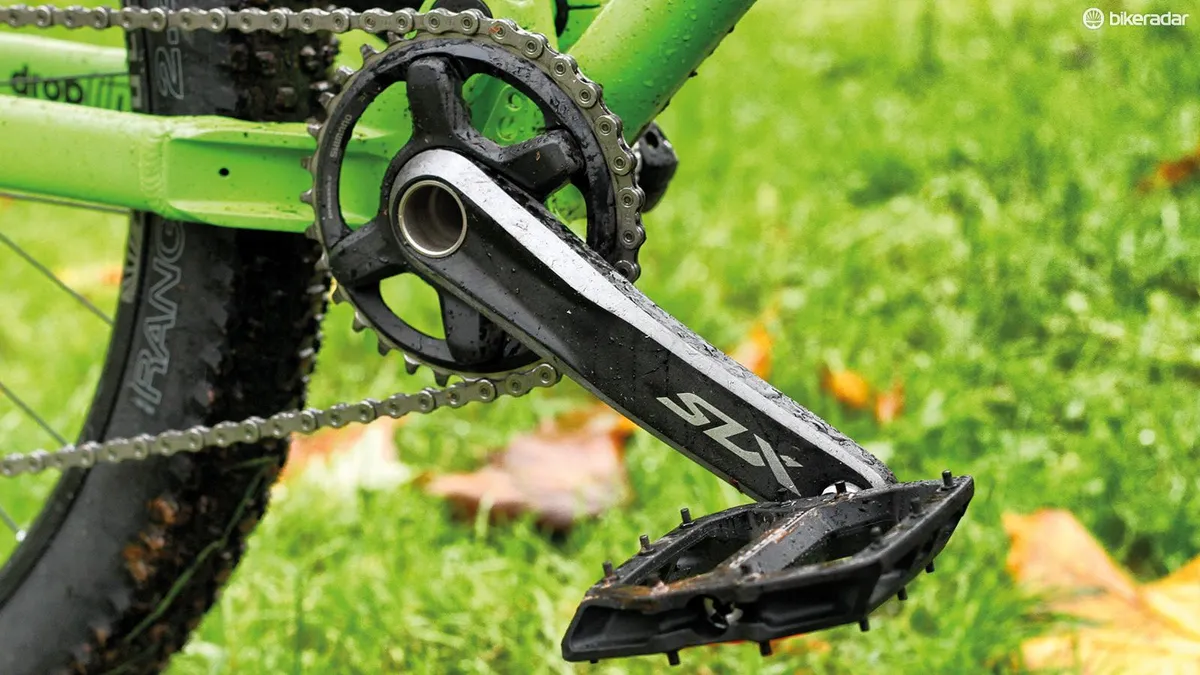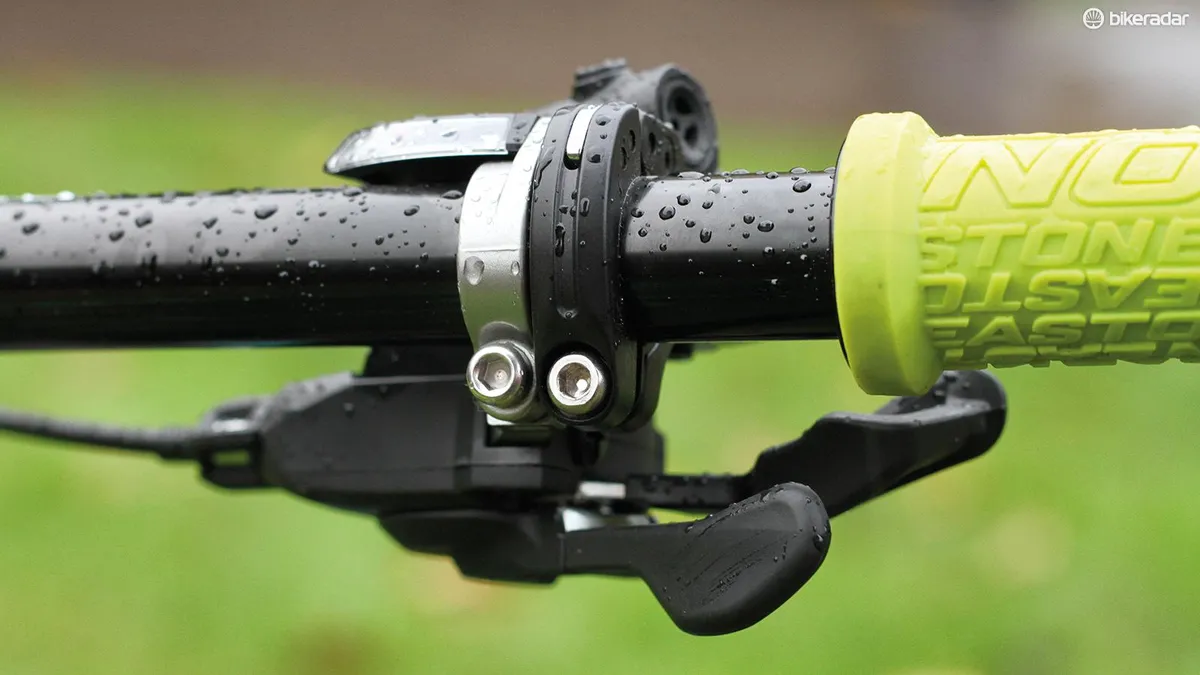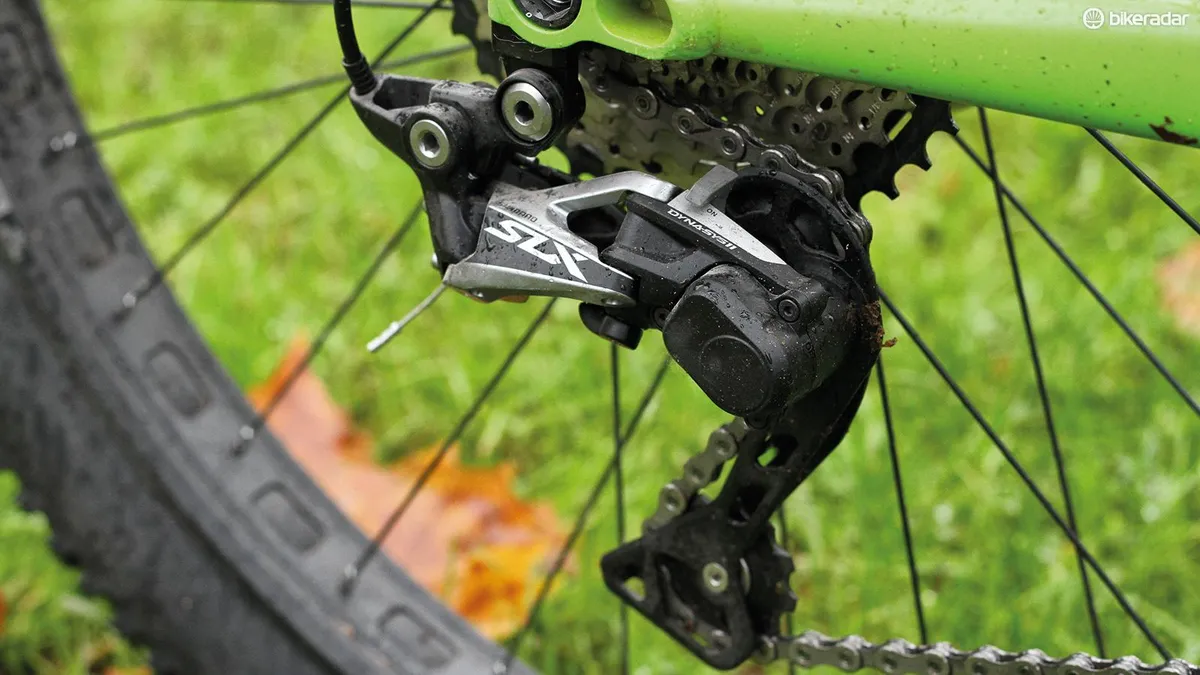Shimano’s SLX transmission used to be untouchable in terms of cost-effective performance and the latest 11-speed version is certainly a bargain compared to XT. But how does it compare to SRAM’s affordable set-ups?
- Shimano's new Deore M6000 group looks impressively refined
- Shimano bike component reviews and buying advice
The only obvious difference to XT is the use of a plastic rather than metal downshift lever. You can still drop down by up to three gears at a time and the metal and alloy upshift lever works both ways. There’s the same removable gear window and separate clamp or I-Spec options too.
Construction details (not least a 34g heavier cassette) add 48g to the gearset, but you still get fluorine-coated pivot pins, an adjustable-tension clutch, direct-mount options and double-sealed jockey wheels on the rear mech.
It can handle a 46t sprocket too, though the biggest the SLX cassette goes is 42t and we’re not big fans of the XT one.
You gain another 26g compared to XT if you add the crankset, and there are only 170 and 175mm arm lengths (XT also offers 165mm).

The light, stiff Hollowtech II arms use Shimano’s new thick/thin (and still scooped a bit) DCE steel ring in a composite carrier, which seems a lot more secure, in terms of chain retention, than the original version on sets we’ve used so far.
The grey anodised finish on the crank arms still wears criminally fast though and there’s no scuff-proof semi-polished option as with previous versions of SLX. XT has the same issue, which is possibly why we see so many XT-geared bikes using Race Face cranks.
Unless 74g and short cranks really matter to you, the £123 saving over XT makes SLX the no-brainer choice for Shimano fans. There are double and triple cranksets, and no fewer than eight front mech options if you’re still a multi-ring fan. Things get more complex compared to SRAM, though.

At £342 and 1,886g, it’s sat halfway between GX (£423/1,655g) and NX (£265/2,008g). The SLX cranks feel stiffer than SRAM’s cheaper scooped-back design and Shimano’s steel rings tend to outlast their rival’s alloy equivalents. But while NX seems cruder in build and finish, it’s proving massively reliable, and if you upgrade the cassette to GX you’ll have a £312/1,788g SLX beater.
Most significantly, the SRAM groups offer much lighter, but still positive feeling, shifting than Shimano’s ‘Vivid’ action, even when the Shimano kit is new and fitted with the correct cables, let alone if the cables get dirty or routing is poor.

